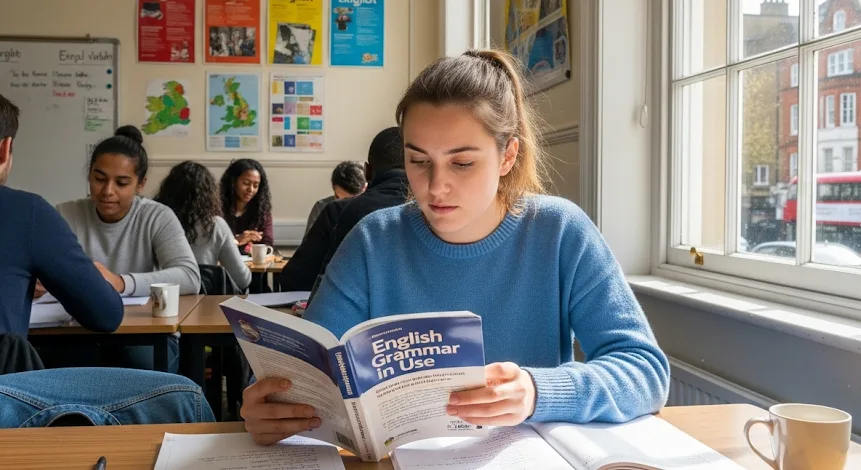
The United Kingdom remains the premier global destination for studying the English language. It offers an unparalleled immersion experience, combining world-class educational standards with a rich tapestry of history and culture. For millions of international students, choosing an English course in the UK is the critical first step toward academic achievement, career advancement, and personal growth. The UK’s global reputation ensures that any qualification you earn is highly respected by employers and educational institutions worldwide.
However, the journey to studying in the UK involves navigating a complex landscape of visa requirements, course types, accommodation options, and cost management. This article serves as your definitive guide, detailing what you should expect from a UK English course, the different qualifications available, the costs involved, the logistics of student life, and a comprehensive checklist to ensure you are fully prepared for a successful educational journey.
Why the UK is the Top Choice for English Language Learners
The decision to study English should not be taken lightly; choosing the UK offers distinct advantages that directly accelerate language acquisition.
The Power of Total Immersion
Learning English in the UK means that the language is not confined to the classroom. You are immersed in authentic communication 24/7—from negotiating prices in local markets to watching television, listening to radio, and interacting socially. This constant exposure is scientifically proven to accelerate fluency and improve comprehension of various accents and idioms far more effectively than studying in a non-native English environment.
Global Recognition and Credibility
UK language schools and universities adhere to strict quality controls. Most reputable language centres are accredited by the British Council or are members of English UK, guaranteeing high teaching standards, safe accommodation arrangements, and appropriate student welfare support. A certificate from an accredited UK institution adds significant weight to your résumé or university application.
Cultural and Historical Context
Studying in the UK allows you to connect the language directly to its origins. Exploring museums, historical sites, and the diverse cultures of cities like London, Edinburgh, and Oxford provides context for idioms, vocabulary, and social etiquette, making your learning experience richer and more memorable.
Understanding Course Types and Qualifications
The UK market offers a wide spectrum of English courses designed for every goal, level, and duration.
1. General English (GE)
- Focus: Core communication skills—grammar, vocabulary, reading, writing, listening, and speaking—for everyday use.
- Duration: Highly flexible (2 weeks to 1 year).
- Best For: Beginners, tourists, and those needing practical, social English skills.
2. Academic English / Pre-Sessional Courses
- Focus: Specific skills required for university study, such as academic essay writing, critical reading, lecture note-taking, and presentation delivery.
- Duration: 4 to 12 weeks.
- Best For: Students who have accepted a place at a UK university but need to meet the language condition or prepare for academic life.
3. Exam Preparation Courses (IELTS, Cambridge, TOEFL)
- Focus: Intensive training on exam techniques, timed practice tests, and specific language skills required to achieve high scores in international English proficiency exams.
- Duration: 4 to 16 weeks.
- Best For: Students needing a formal qualification for visa, university, or professional registration purposes. IELTS is the most commonly required exam in the UK.
4. Business and Professional English
- Focus: Language skills tailored for the corporate world, including negotiation, professional email composition, formal presentations, interview techniques, and cross-cultural communication in a business context.
- Duration: Short, intensive courses (1 to 8 weeks).
- Best For: Working professionals aiming for promotion or seeking employment in multinational companies.
5. Specialist and Private Tutoring
- Focus: Highly customised content, such as English for Law, Medicine, or Aviation, or intensive 1-to-1 tutoring.
- Best For: Professionals with very specific language needs or those requiring rapid, focused improvement.
The Student Experience: Life Beyond the Classroom
The student experience in the UK is holistic, and much of your learning will occur outside the school building.
Accommodation Options
Finding suitable accommodation is crucial. The main options include:
- Homestay (Host Family): Living with a British family. Offers the most immersion and includes meals. Ideal for first-time travellers and cultural learning.
- Student Residences/Halls: Managed by the school or a private company. Provides a social environment with other students, usually including single rooms and shared facilities.
- Private Rental: Shared house or flat (HMO) with other students. Offers independence but requires managing utility bills and landlord communication.
Budgeting and Living Costs
The UK is considered a high-cost destination. Your budget must cover:
| Expense Category | Estimated Weekly Cost (GBP) | Notes |
| Course Tuition | £150 – £350 | Varies widely by intensity and school location. |
| Accommodation (Homestay) | £140 – £220 | Often includes breakfast and dinner. |
| Accommodation (Private PBSA) | £180 – £350 | Usually includes all utility bills (all-inclusive). |
| Food (Self-Catering) | £40 – £70 | Based on preparing most meals at home. |
| Transport (Local) | £15 – £35 | Varies by city; London is higher (using Oyster/Contactless). |
| Social/Entertainment | £30 – £70 | Necessary for practicing English and cultural engagement. |
Exportar para as Planilhas
(Students should refer to the UK Visa and Immigration (UKVI) maintenance funds required for their specific visa to ensure they budget adequately for living costs.)
Visa and Legal Requirements
For most non-EEA students, a visa is mandatory for any course longer than six months.
1. Short-Term Study Visa
- Duration: Up to 6 months.
- Purpose: For short language courses or holidays.
- Work Rights: None (you cannot work or switch to another visa type from within the UK).
2. Student Visa (formerly Tier 4)
- Duration: For courses longer than 6 months (typically 11 months or more).
- Purpose: Long-term academic study.
- Work Rights: Allows limited part-time work (usually 10 or 20 hours per week during term time, depending on the course level), which helps offset living costs.
Critical Step: You must obtain a Confirmation of Acceptance for Studies (CAS) number from your accredited school to apply for a Student Visa.
Checklist for a Successful UK Language Study
A systematic approach ensures you avoid common pitfalls and maximise your learning:
Before Departure
- Visa Secured: Apply well in advance with all necessary financial and CAS documentation.
- Insurance: Purchase comprehensive travel and health insurance (private, or confirm eligibility for NHS access).
- Accommodation Booked: Have your first month of accommodation confirmed and paid for.
- Budget Finalised: Set up a budget and arrange currency exchange.
- Documentation Organised: Photocopy passport, visa, and CAS letter; keep originals secure.
During Your Course
- Practice Daily: Do not speak your native language with classmates; immerse yourself.
- Engage Culturally: Attend social events, visit museums, and watch local news to absorb the language and culture.
- Utilise Resources: Take advantage of school facilities, like libraries, language labs, and conversation clubs.
- Set Clear Goals: Define whether you are focused on fluency, a specific exam score, or professional vocabulary.
- Know Your Rights: Understand your student visa conditions and your rights as a tenant in the UK.
Conclusion
Studying English in the UK is a transformative experience that extends far beyond grammatical rules. It offers a chance to accelerate your fluency rapidly while gaining a respected qualification and deep cultural insight. By strategically planning your course type, meticulously managing your budget, and diligently handling visa and accommodation logistics, you position yourself for success. The UK education system, with its robust quality control from bodies like the British Council, provides the foundation. Your commitment to total immersion will deliver the results. The time and investment you put into an English course in the UK will unlock global opportunities, making you confident and competitive in the international landscape.
Frequently Asked Questions (FAQ)
1. Do I need a visa to study English in the UK?
Yes, depending on your nationality and course length. Short-term study visas are common for English courses.
2. How long does it take to improve my English in the UK?
It depends on your starting level and course intensity. Many students see significant progress within 12 weeks.
3. Are English courses in the UK suitable for beginners?
Yes, schools offer classes for all levels, with placement tests to ensure you are in the right group.
4. Can I work while studying English in the UK?
It depends on your visa type. Short-term student visas usually do not allow work, while longer visas may.
5. Are online English courses available from UK schools?
Yes, many institutions now offer hybrid or fully online English programmes.


 Yoga and Meditation Courses in the UK: Become a Certified Instructor
Yoga and Meditation Courses in the UK: Become a Certified Instructor  First Aid Course: How to Save Lives in the UK
First Aid Course: How to Save Lives in the UK  Nutrition and Wellbeing Training in the UK: How to Help Others Live Healthier Lives
Nutrition and Wellbeing Training in the UK: How to Help Others Live Healthier Lives